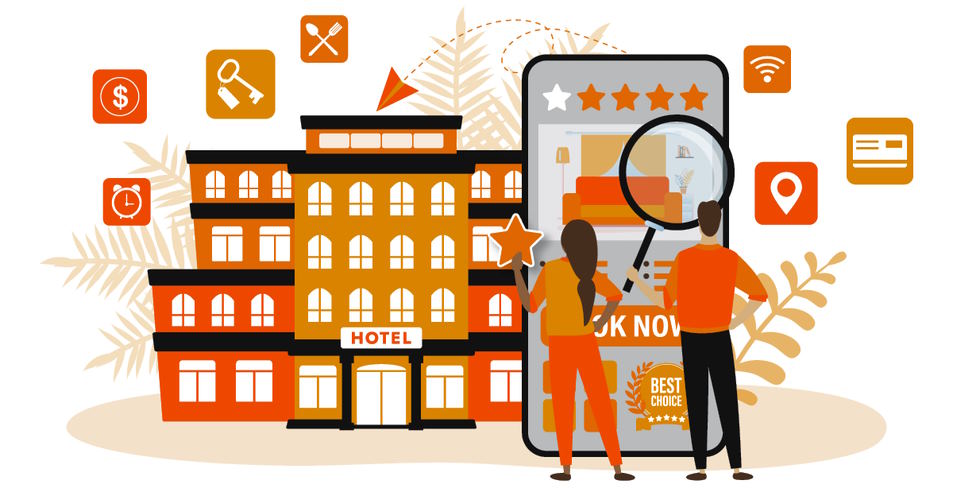In today’s highly competitive hospitality industry, implementing effective hotel marketing strategies is crucial for reaching and attracting the target audience. With travelers becoming increasingly discerning and digitally connected, it has become essential for hotels to employ targeted and compelling marketing tactics. By understanding the preferences and behaviors of their desired audience, hotels can create a powerful brand identity, optimize their online presence, personalize the guest experience, and leverage various marketing channels to drive bookings and revenue.
Creating a Compelling Brand Identity
Defining your hotel’s unique selling proposition is crucial in establishing a distinctive position in the market. Identify what sets your hotel apart from others and highlight those unique features or experiences that resonate with your target audience. Whether it’s luxurious amenities, exceptional customer service, or a prime location, your USP should communicate the value proposition that makes your hotel irresistible to potential guests.
Once you have defined your USP, the next step is to develop a strong brand image and message. This involves creating a visual identity through logo design, color schemes, and overall aesthetics that reflect the personality and essence of your hotel. Consistency in branding across all touchpoints, from your website to social media profiles, helps build recognition and trust among your audience. Craft a compelling brand message that communicates your hotel’s values, mission, and unique offerings, ensuring it resonates with the emotions and aspirations of your target audience.
Lastly, aligning your brand identity with the preferences of your target audience is vital. Conduct market research to gain insights into their preferences, lifestyles, and desires. Tailor your brand identity elements to align with their preferences, whether it’s incorporating eco-friendly practices, focusing on family-friendly amenities, or embracing a specific theme that appeals to their interests. By understanding and catering to the preferences of your target audience, you can create a brand identity that not only captures their attention but also fosters a strong emotional connection, driving loyalty and repeat bookings.

Utilizing Influencer and Partnership Marketing
In today’s digital age, leveraging the power of influencers and strategic partnerships has become a game-changer for hotel marketing strategies. By harnessing the reach and credibility of influencers, as well as forging alliances with complementary businesses, hotels can tap into new audiences and significantly enhance their brand visibility. Additionally, implementing affiliate marketing programs can further amplify their marketing efforts through referrals.
Collaborating with influencers provides a valuable opportunity to extend your hotel’s reach to a wider audience. Identify influencers who align with your target market and have an engaged following. Partnering with them for sponsored content, reviews, or collaborations can generate buzz around your hotel and increase exposure among their loyal fan base. Influencers’ authentic recommendations and firsthand experiences can drive trust and influence potential guests’ booking decisions.
Strategic partnerships with complementary businesses offer mutual benefits and can significantly enhance your marketing efforts. Identify businesses that share a similar target audience or offer complementary services, such as local attractions, tour operators, or restaurants. By collaborating on joint marketing campaigns, cross-promotions, or bundled packages, you can tap into their customer base and create enticing offers that add value to your guests’ experience. These partnerships not only expand your reach but also enhance your hotel’s overall appeal by offering a comprehensive and seamless experience.
Implementing affiliate marketing programs can further leverage the power of referrals. Create partnerships with travel bloggers, online travel agencies, or travel-related websites, and offer them a commission for every referral that results in a booking. This incentivizes them to promote your hotel, driving traffic and potential guests to your website. By carefully selecting affiliate partners and providing them with the necessary marketing materials and tracking mechanisms, you can effectively tap into their network and generate qualified leads.

Leveraging Email Marketing and Loyalty Programs
In the digital landscape, email marketing continues to be a highly effective strategy for hotels to engage with their audience and drive bookings. By building an email subscriber list and crafting personalized, engaging campaigns, hotels can nurture relationships, deliver targeted offers, and keep guests coming back. Additionally, implementing loyalty programs can further incentivize repeat visits, fostering loyalty and advocacy among guests.
Building an email subscriber list is the foundation of successful email marketing. Create opportunities for website visitors, guests at check-in, and social media followers to subscribe to your newsletter or promotional updates. Offer exclusive incentives, such as discounts or access to special events, to encourage sign-ups. Remember to obtain consent and ensure compliance with privacy regulations. Growing a quality subscriber list allows you to reach a captive audience who has already expressed interest in your hotel.
Crafting personalized and engaging email campaigns is crucial for maintaining guest interest and driving conversions. Segment your email list based on guest preferences, booking history, or demographic data to deliver tailored content. Use dynamic content and personalization techniques to address recipients by name and offer customized recommendations based on their previous stays or interests. Engage readers with visually appealing designs, compelling storytelling, and enticing call-to-action buttons. Be strategic with your email frequency to avoid overwhelming your audience while staying top-of-mind.
Implementing a loyalty program is an effective way to incentivize repeat visits and enhance guest satisfaction. Offer rewards, such as room upgrades, exclusive discounts, or VIP perks, to guests who join the program and accumulate points or stays. Encourage participation by promoting the program through email campaigns and on-site signage. Regularly communicate with loyalty program members to provide personalized offers, updates, and opportunities to earn additional rewards. By fostering a sense of exclusivity and appreciation, loyalty programs foster guest loyalty, increase retention, and generate positive word-of-mouth.
